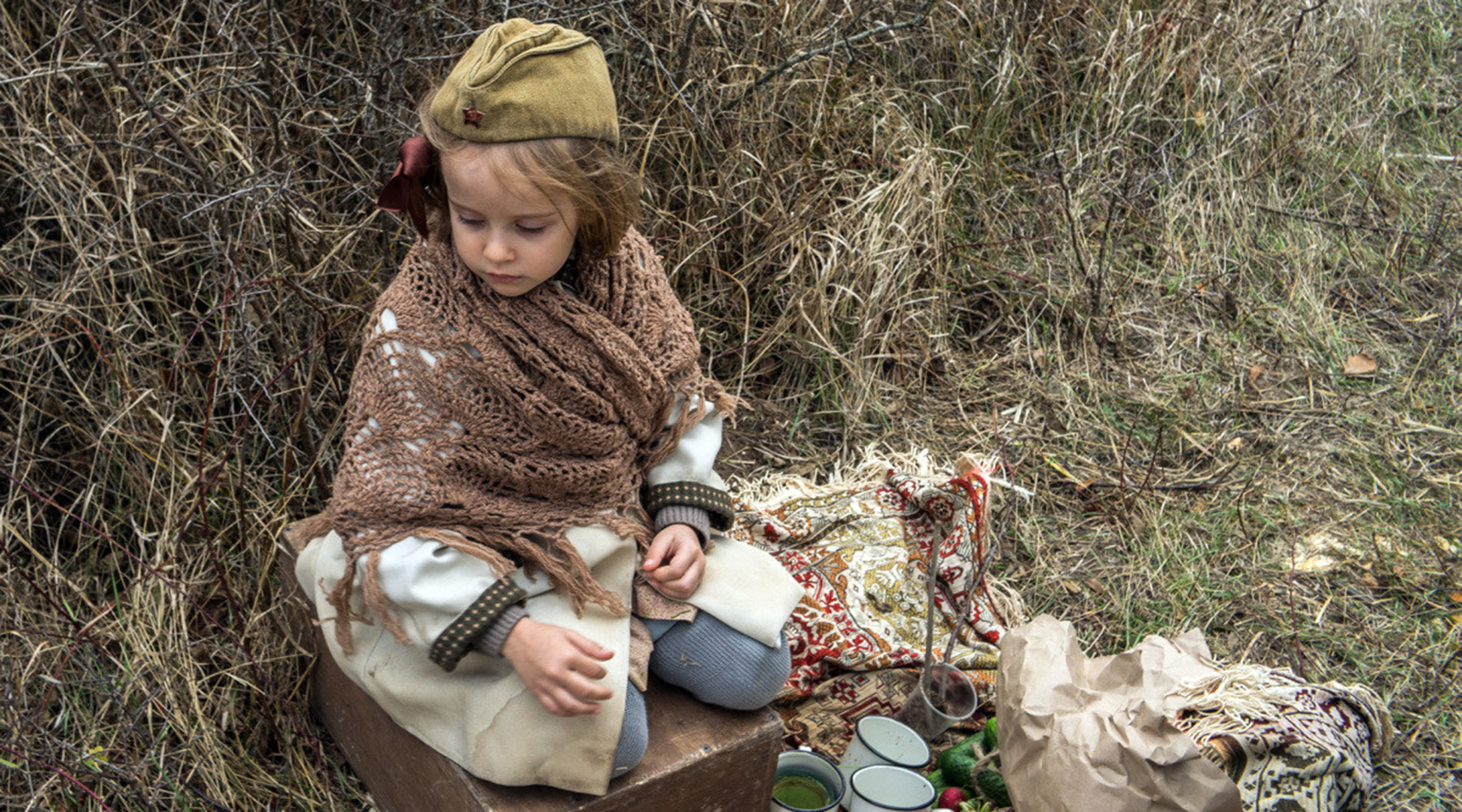At the end of July 1941, near the village of Legedzino, Cherkasy Region, 500 fighters of the separate Kolomyia border commandant's office and 150 service dogs entered into an unequal battle with units of the SS elite tank division “Leibstandart Adolf Hitler” to cover the withdrawal of command and staff. All Soviet border guards were killed, several of the surviving dogs after the battle were shot by the Germans, but the offensive on this site was delayed.
Local residents buried the bodies of soldiers and animals in a mass grave. In 2003, a monument was erected to the heroes of the border guards and their dogs at the battlefield.
This little-known feat formed the basis of the script of the eight-part film "Dzhulbars". The new tape of the production center “CITY” is called the same as the 1935 film, which tells about the border guards and the German shepherd. However, the creators of the series warn that the focus of their attention is still not the dogs, but the people. Director Ivan Shurkhovetsky calls pets “tuning fork” for heroes.
The action of the tape takes place in the summer of 1941. The Great Patriotic War barely began, the enemy, disease and famine are still far away for many. At first, almost the main problem of the characters is the spoilage of sausage by a stray dog. Just this character will become a service dog named Dzhulbars.
Of course, soon the peaceful situation will be replaced by hostilities and tragic events. Already at the beginning of the tape, a sense of impending disaster is created due to the arrival of a sabotage group. The task of neutralizing the Germans is posed in front of the poorly armed cadets of the school of official dog breeding, whom commander Ivan Shevtsov (Nikolai Machulsky) calls puppies. During the operation, saboteurs seriously injured Sergeant Yegorych (Alexander Marushev). However, the surgeon Kira (Maria Andreeva), who was traveling with her daughter Lisa (Vitaliy Kornienko) to the city hospital, to her new place of work, comes to the rescue.
- © Shot from the movie Dzhulbars (2019)
In the future, filmmakers will focus on relationships in a love triangle. The positive Shevtsov and strict Kira, according to the laws of the genre, initially treat each other with undisguised irritation, but later find mutual understanding. However, Kira has a “benefactor” - the head of the city party committee Polyakov, performed by Alexei Barabash, who is ready to seek the girl by any means.
The hero of Barabash turned out to be rather gloomy: he does not hesitate to abuse power, keeps his subordinates in fear and awaits the unquestioning execution of any of his whim. By the way, his manner of communication and appearance are given more to the 1990s than to wartime.
At the same time, the rest of the characters are very convincing. The producers of the film, Andrei Radko and Elena Gorodetskaya, said: “We tried to select the leading roles in such a way that they did not have a train of similar roles, while they were supposed to get into the era of the 1940s, corresponding to that time” .
Nikolai Machulsky before shooting took a training course in pistol shooting. Also, for immersion in the image, he watched a movie of the 1940s. The actor even managed to adopt some of the features of the pronunciation of that era.
- © Shot from the movie Dzhulbars (2019)
Sofia Ozerova, who played nurse Glasha, had to work on the speech. She developed a Siberian dialect to emphasize the origin of her heroine. It is interesting that at first the director Ivan Shurkhovetsky did not plan to approve Ozerova, however, she showed high professionalism and even got better for the role.
This is not the first time Shurkhevetsky has turned to military subjects: in his filmography, there are already television projects about the "hitters" "Fog" and "Fog 2", as well as the mini-series "The Last Battle" (where he also collaborated with Alexander Marushev). The most famous work of the director is the Slavic fantasy Legend of Kolovrat, co-authored with Janik Fayziev.
The first episode of Dzhulbars will be aired on Channel One on April 27th.

